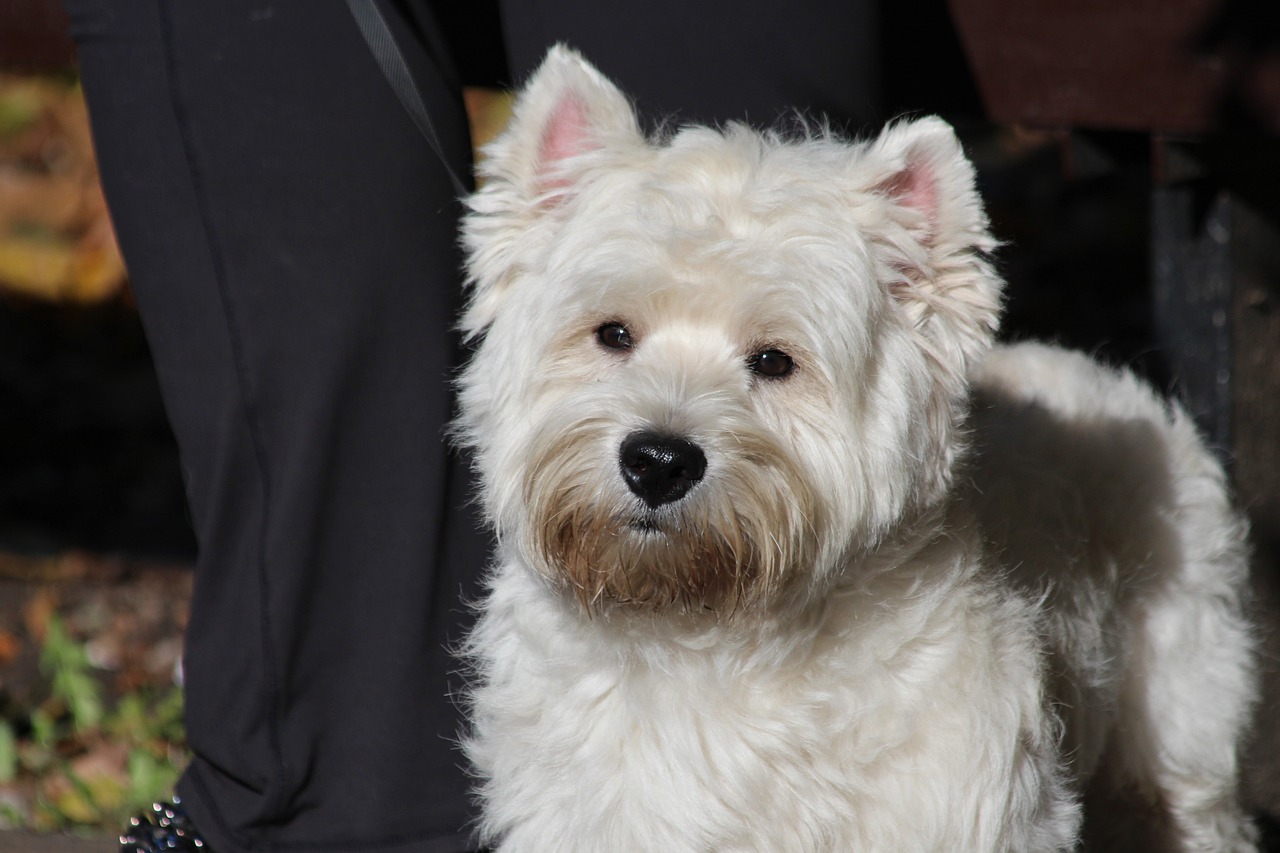West Highland White Terriers
Showing the single result
Shelter Dog Meal Donation Count:
Showing the single result
This breed, affectionately known as the “Westie,” is known for its distinctive white coat and lively personality, making it a popular choice among dog lovers.
Westies are adaptable and can thrive in various living situations, from apartments to houses with yards. They are excellent companions for active individuals or families. Despite their small size, they are sturdy and not overly delicate.

Originally bred in Scotland for hunting, West Highland White Terriers were refined for their white coat to aid visibility during hunts, becoming a distinct and cherished breed.

Common Issues: Prone to skin allergies, patellar luxation, and Westie lung disease. Veterinary Care: Regular check-ups and vaccinations are essential.
Needs: High; requires regular brushing and occasional trimming. Shedding: Moderate; consistent grooming helps manage it.
Requirements: Daily walks and playtime are vital for their physical and mental well-being. Activities: They enjoy various activities, from fetch to agility courses.
Approach: Positive reinforcement works best. Consistency is key due to their independent nature. Socialization: Early socialization is crucial to prevent them from becoming overly territorial or aggressive.
Diet: High-quality dog food suitable for their age, size, and activity level. Feeding Schedule: Regular feeding times, and avoiding overfeeding to prevent obesity.
The West Highland White Terrier is a delightful breed that brings joy and liveliness to any home. Their care requires attention to grooming, exercise, and training, but the rewards of their companionship are immense. If you're seeking a small dog with a big personality and an adventurous spirit, the Westie might just be the perfect fit for you!
The West Highland White Terrier, affectionately known as the Westie, is generally a robust and healthy breed, but like all breeds, they are prone to certain health issues.
While Westies are generally healthy, being aware of these common health issues and engaging in regular veterinary care can help ensure a long, happy life for your pet. Always consult with a veterinarian for the best health strategies for your specific dog.
The iHeartDogs Free Rx Discount Card Program is a pet prescription discount card that can help you save money on your furry friend’s medications. The card is free to sign up for, and you can use it at participating pharmacies nationwide. To use the free program, simply show the card to your pharmacist when you pick up your pet’s prescription. The pharmacist will then scan the card, and you will receive a discount on the price of the medication.LEARN MORE
The annual cost of caring for a West Highland White Terrier, like any pet, can vary depending on various factors such as your location, the dog’s health, and the level of care you provide. Here’s a breakdown of the typical expenses:
Total Estimated Annual Cost:
$2585 - $6570
It's important to note that these figures are estimates and can vary. Also, the first year of owning a dog can be more expensive due to one-time costs like spaying/neutering, initial vaccinations, and training. Regular budgeting for your dog's needs and an emergency fund for unforeseen costs are essential for responsible pet ownership.